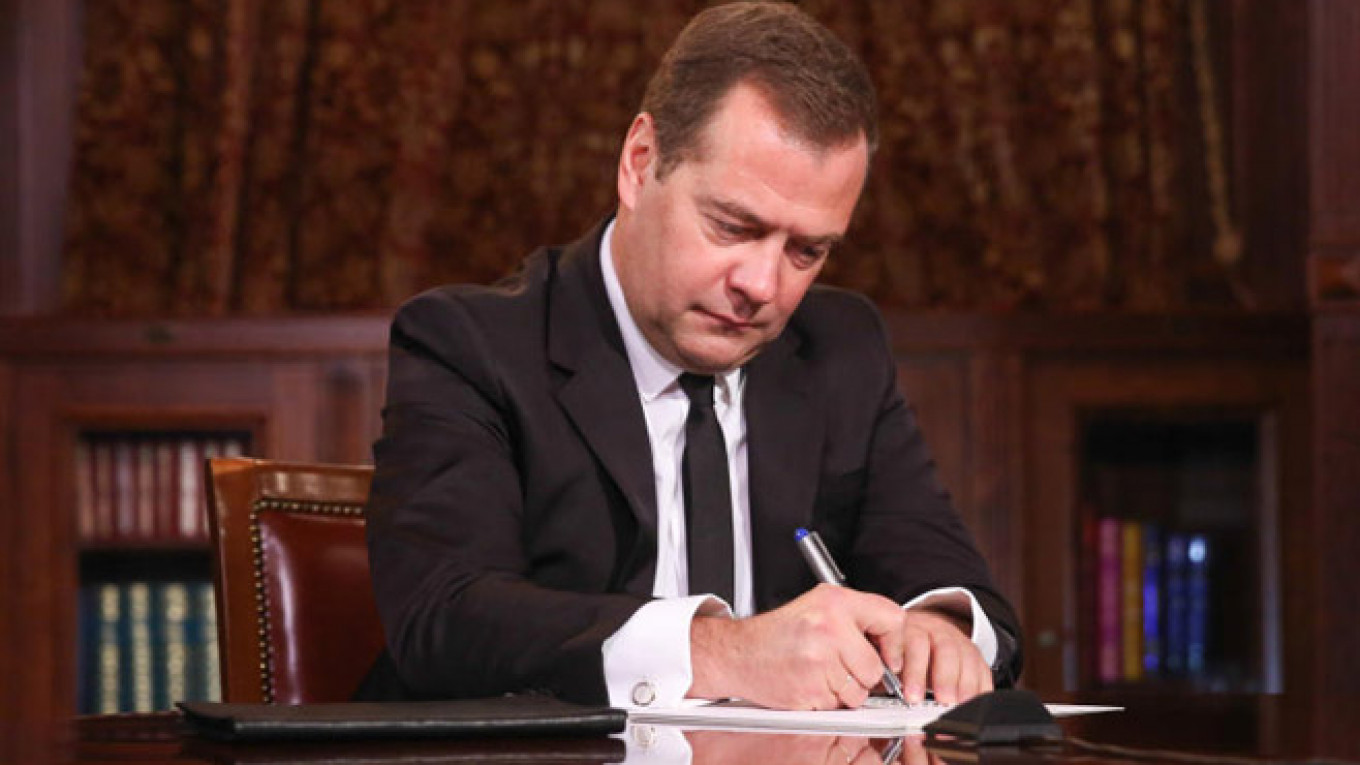Prime Minister Dmitry Medvedev on Monday told the government to ensure that mortgage lending isn't "reduced to nothing" as crushing loan payments squeeze Russians amid sky-high interest rates and rising inflation, news agency Interfax reported on Monday.
Medvedev did not offer specific measures, but President Vladimir Putin had earlier asked the prime minister to consider a proposal to drop mortgage interest rates to 12 percent, the agency said, citing an unnamed source.
That proposal, floated by Moscow region Governor Alexander Vorobyov last month, would have the Central Bank, federal budget or Agency for Housing Mortgage Lending subsidize banks' mortgage loans.
Vorobyov in his plan said "general economic factors" had driven the average mortgage rate from 12.5 percent to 19 percent and that lending rates for developers had shot up from 14 percent to 27 percent, Interfax reported. The higher lending rates come at a time of reduced real wages for Russians, as rising inflation and a fast-devaluing ruble erode incomes.
The ruble has shed over 50 percent of its value against U.S. dollar since last summer, pummeled by Western sanctions over Moscow's role in the Ukraine crisis and the falling price of oil, the country's main export.
News agency RBC on Monday cited unnamed sources saying the Agency for Housing Mortgage Lending had proposed budgeting 400 billion rubles ($5.8 billion) to support mortgage lending, which the agency sees shrinking from 1.7 trillion rubles ($25 billion) last year to an estimated 200 billion rubles in 2015.
Mikhail Zadornov, head of retail bank VTB24, said last month that 15-17 billion rubles ($218-$247 million) would be needed to subsidize lower lending rates, Interfax reported.
The Central Bank hiked its key interest rate to 17 percent in December in a effort to stem the ruble's fall and combat double-digit inflation. The move, which has not halted the ruble's decline, saw banks raise lending rates to an average of 15 to 16 percent, newspaper Vedomosti reported in December.
The regulator last week lowered its rate to 15 percent in a move seen as an attempt to support bank lending, but analysts say the reduction is unlikely to feed through to rate cuts at retail banks.
Enthusiasm in government for mortgage subsidies may be weak, however. Russia is already set to cut all federal spending except defense by 10 percent as the economy readies for a contraction of over 3 percent this year.
Contact the author at [email protected]
A Message from The Moscow Times:
Dear readers,
We are facing unprecedented challenges. Russia's Prosecutor General's Office has designated The Moscow Times as an "undesirable" organization, criminalizing our work and putting our staff at risk of prosecution. This follows our earlier unjust labeling as a "foreign agent."
These actions are direct attempts to silence independent journalism in Russia. The authorities claim our work "discredits the decisions of the Russian leadership." We see things differently: we strive to provide accurate, unbiased reporting on Russia.
We, the journalists of The Moscow Times, refuse to be silenced. But to continue our work, we need your help.
Your support, no matter how small, makes a world of difference. If you can, please support us monthly starting from just $2. It's quick to set up, and every contribution makes a significant impact.
By supporting The Moscow Times, you're defending open, independent journalism in the face of repression. Thank you for standing with us.
Remind me later.






